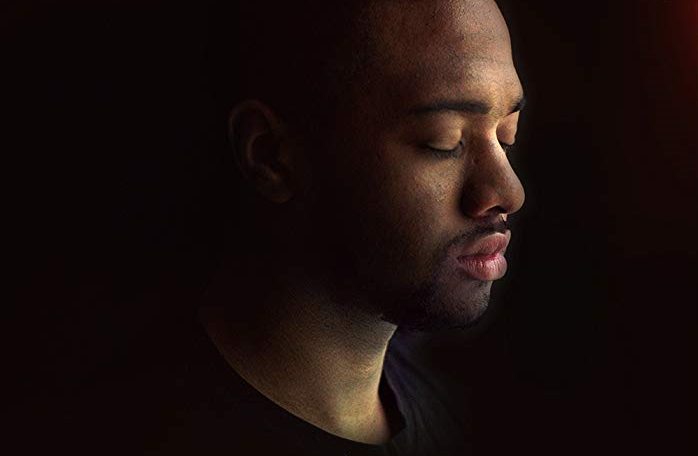Following on from Fabulous as part of a black history double bill at this year’s SQIFF, Father Figure carries on many of the same topics: LGBTQ community, ball culture, and discrimination. This short film takes a different approach to documentary, though, and presents a more stylised look.
The focus is twenty-six-year-old ballroom performer Guilliano Pinas (of the House of Kiki) who, he tells us, came out after having several relationships with women and fathering a son – who features in one tender scene. The idea of fathership is also explored through Guilliano’s relationship with his House members, though – other gay men who are involved in the ballroom dance scene with him. The House members all speak candidly to camera, detailing brutal and honest experiences of their lives and the prejudices they have faced. Each interview shot is manipulated and presented only in black and blood red, creating a menacing sense of secrecy. Digital effects are included in several other shots, too, as geometric patterns and graphics are shaped around the film’s subjects and amplify the sense of art and performance attached to the House of Kiki’s dance displays. Intermittent closeups of Guilliano also create a feeling of both oppression and safety.
Written text is also powerfully employed, particularly in the short film’s opening scene as lines from a Langston Hughes poem create a sobering atmosphere. The interviewee’s words too, continue to be frank and bold. Early on in the film, Guilliano tells us “… being black and gay means you have two strikes against you.” Their words showcase bravery, though: in the face of racism and mistreatment, they continue to express themselves openly and perform in public spaces without apology.
Although Father Figure is brief, it creates impact and allows a real sense of insight into Guilliano. Its stylised look is also engaging and it feels disappointing that the documentary doesn’t surpass the tight twenty-five minute mark.
